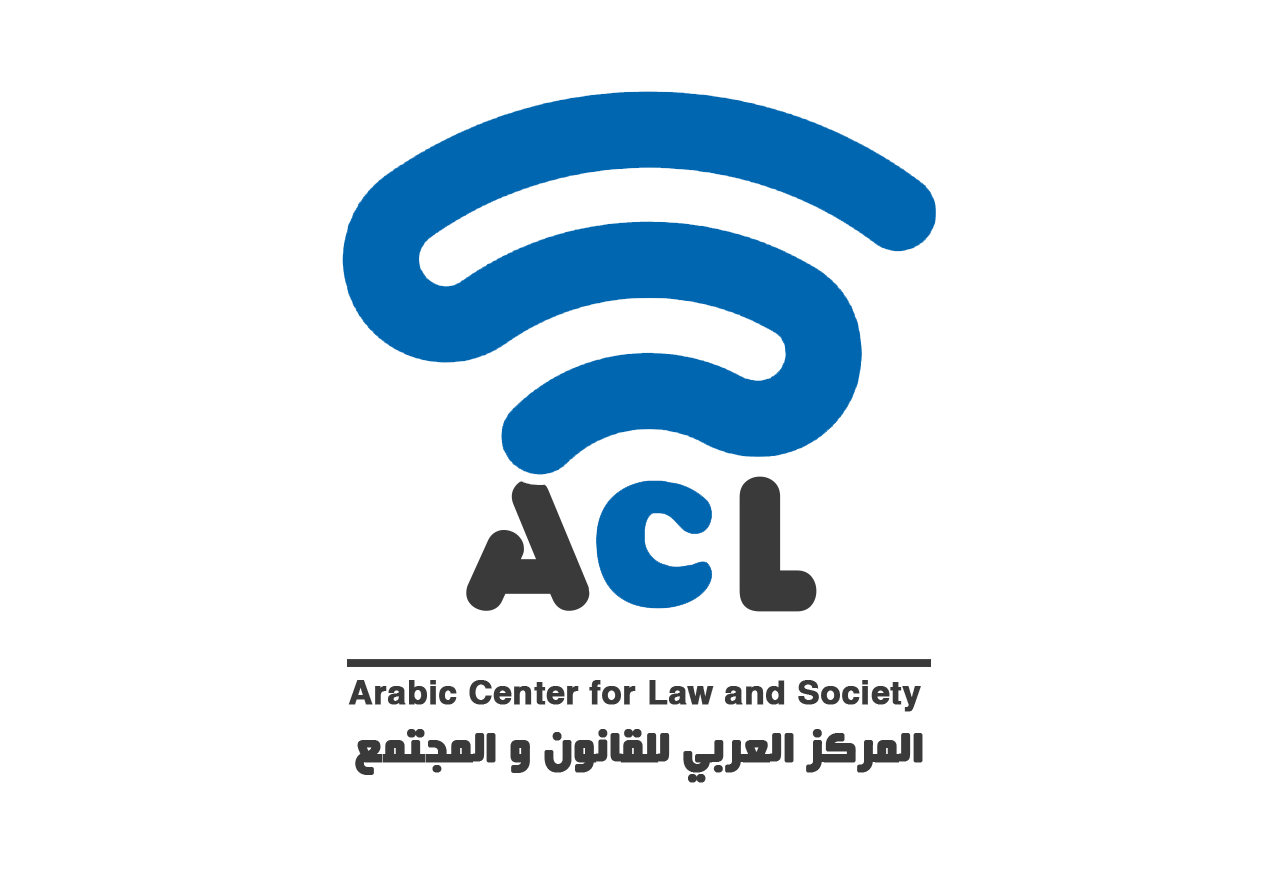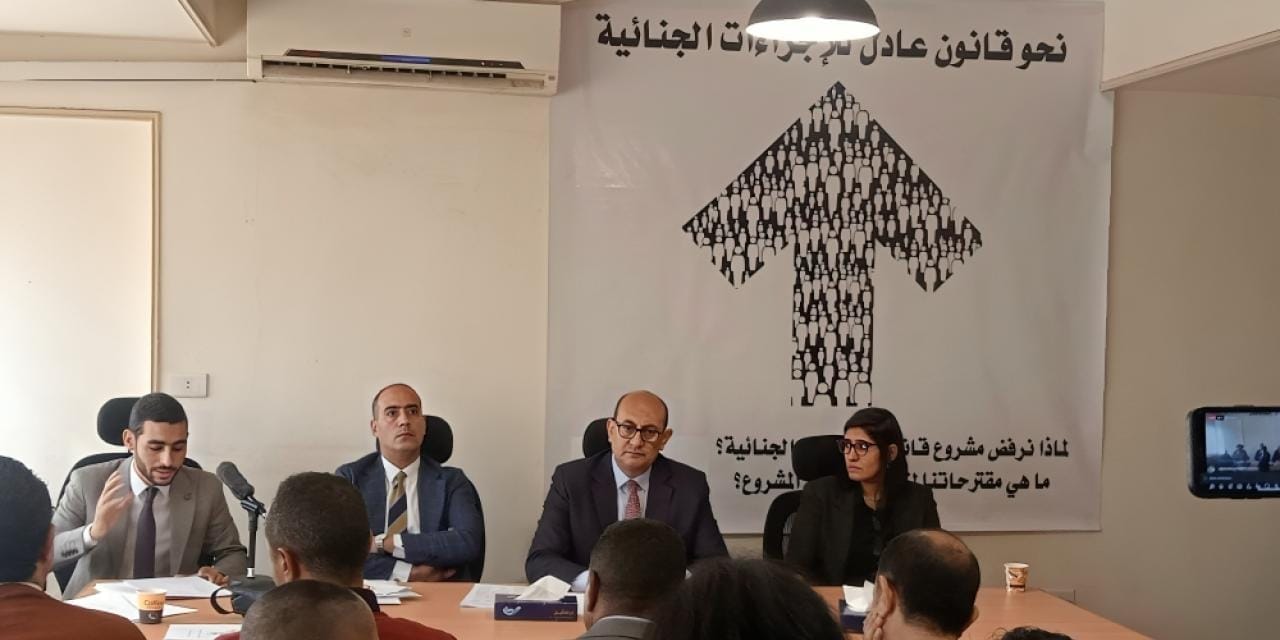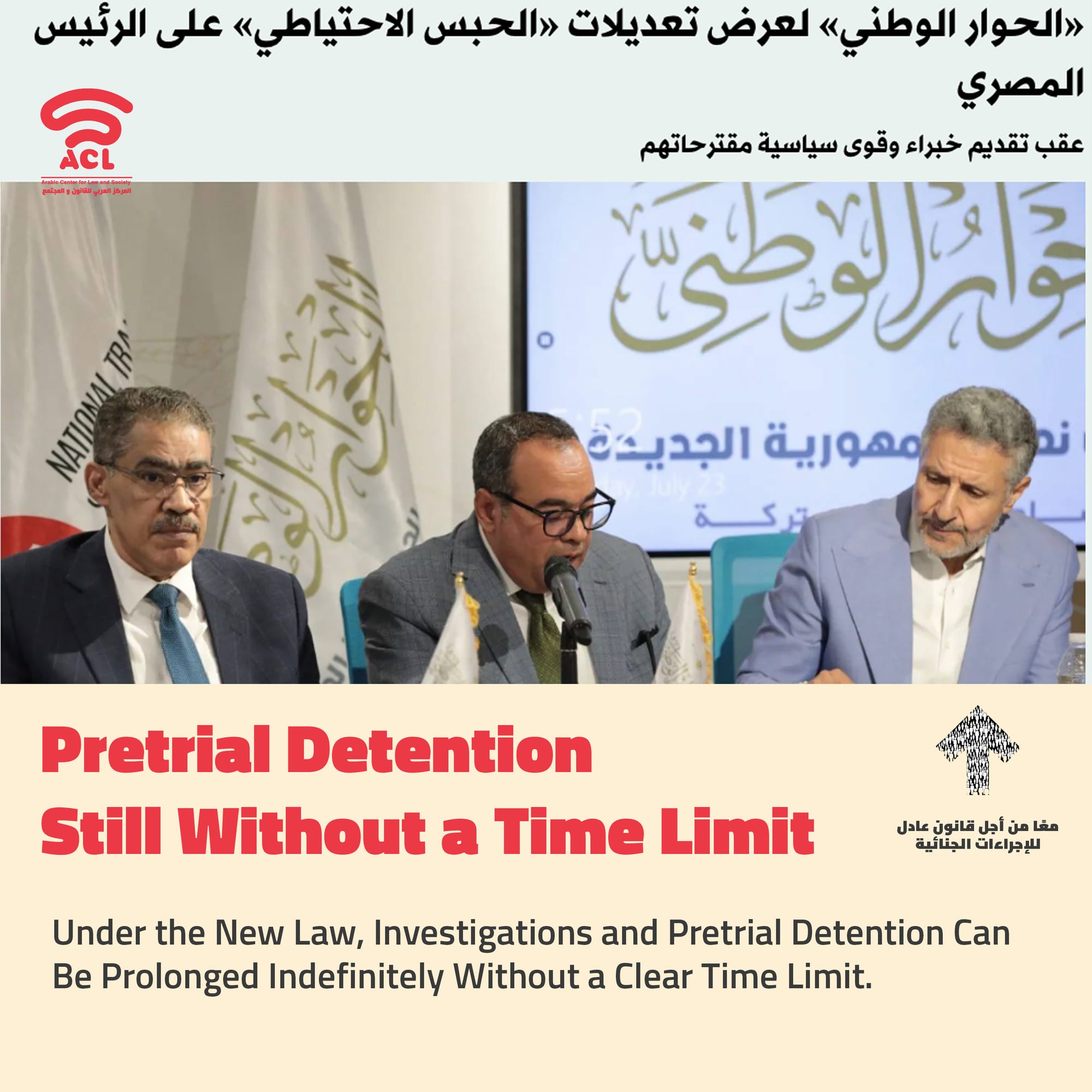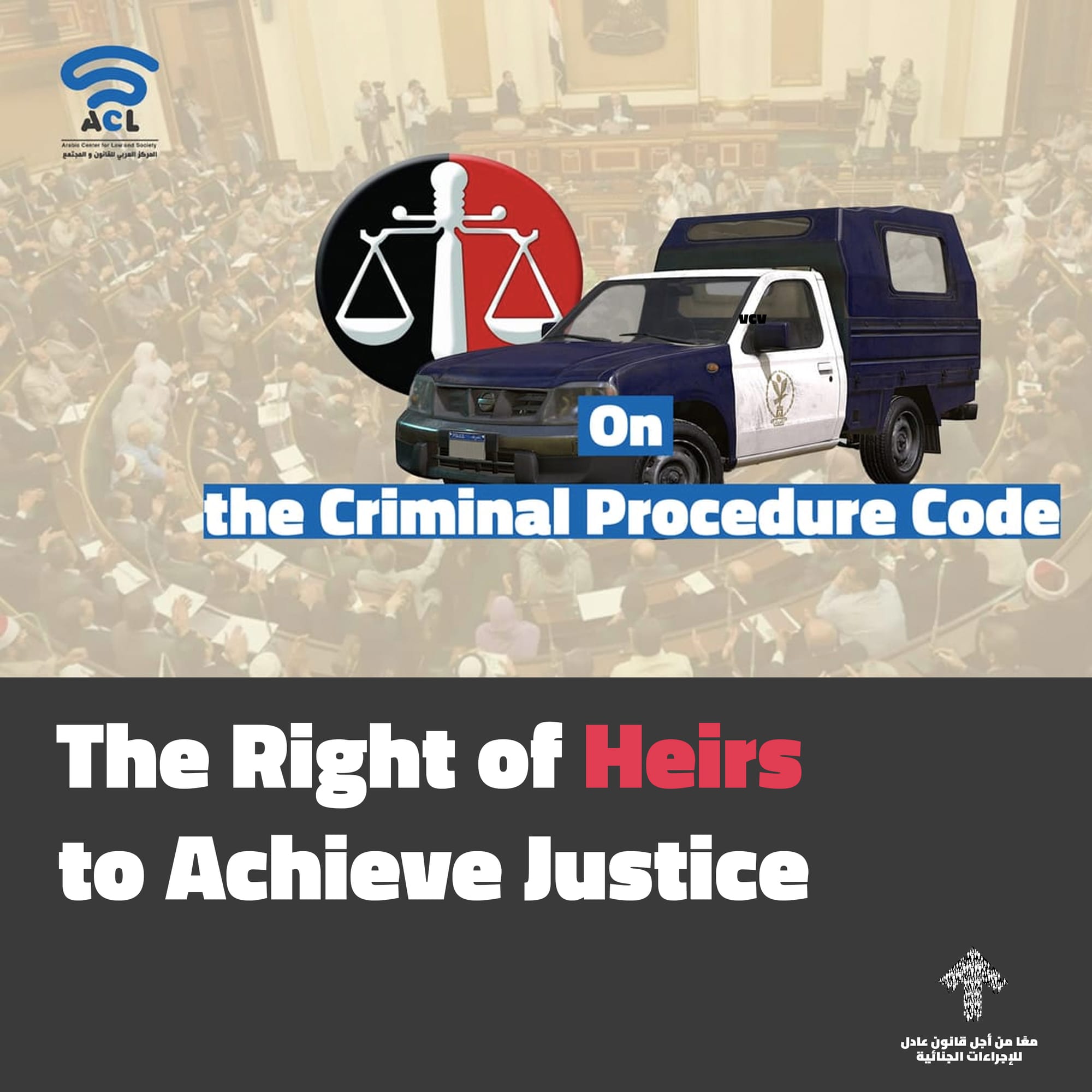The Arab Center for Law and Society Studies Joins the Campaign "Together for a Fair Criminal Procedure Code"
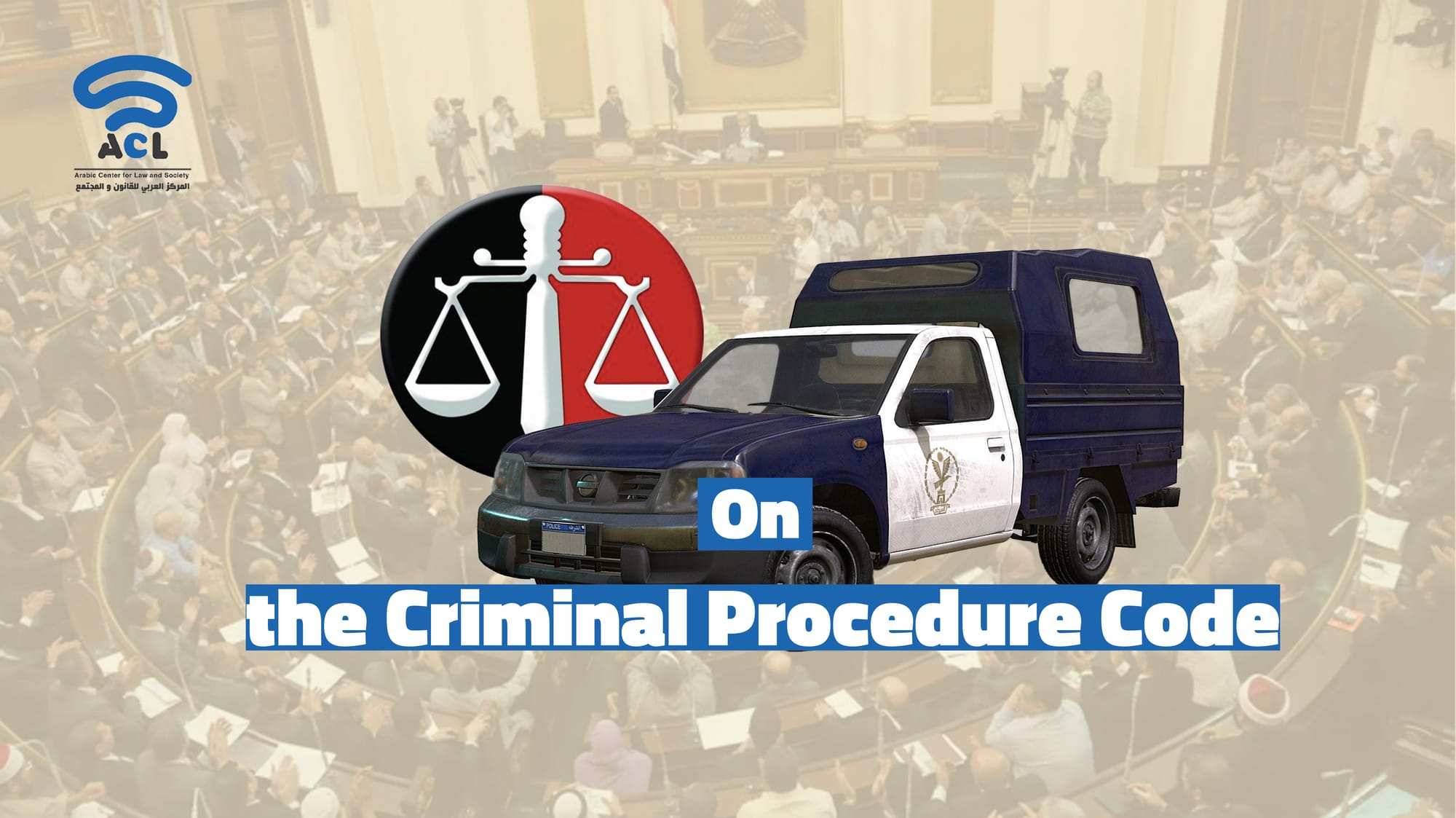
Amid ongoing discussions in the Egyptian Parliament regarding the draft Criminal Procedure Code, the Arab Center for Law and Society Studies has announced its support for the campaign "Together for a Fair Criminal Procedure Code." This campaign unites human rights organizations, professional syndicates, and legal experts in a collective effort to draft a law that reflects the needs of the Egyptian people and upholds the principles of criminal justice based on respect for human rights.
The Criminal Procedure Code is the cornerstone of the criminal justice system. Its primary role is to protect individual rights, ensure the integrity of judicial processes, and prevent legal violations that adversely affect defendants' rights. However, the proposed draft law has sparked significant controversy, as it lacks essential safeguards to protect citizens' rights and includes provisions that undermine justice.

Key Issues in the Draft Law:
- The proposed draft does not provide explicit provisions to protect defendants' right to defence and undermines the role of lawyers during the investigation and trial stages. This directly affects citizens' right to a fair trial and increases the likelihood of legal errors that may lead to the conviction of innocent individuals.
- The draft grants broad powers to unqualified individuals, threatening individual freedoms and opening the door to serious human rights violations. This expansion contradicts international standards, which emphasize the strict limitation of law enforcement powers.
- The draft law includes provisions allowing reconciliation in cases involving public funds. This approach represents a serious setback in combating corruption and undermines the rule of law and accountability.
- The preparation of the draft law did not involve genuine participation from relevant stakeholders, including human rights organizations and legal experts. This lack of involvement reflects a non-transparent approach to drafting laws that affect citizens' rights and freedoms.
- The draft contradicts Article 14 of the International Covenant on Civil and Political Rights, which guarantees the right to a fair and public trial before an independent and impartial tribunal. This inconsistency demonstrates Egypt's lack of commitment to international human rights standards.
Laws that affect personal freedoms and individual rights have a direct impact on the daily lives of ordinary citizens. For example, the absence of legal safeguards may result in the prolonged detention of innocent individuals, causing irreparable harm.
Our Recommendations:
- The law must clearly stipulate defendants' rights, including their right to legal defence and the presence of their lawyers at all stages of legal proceedings.
- Provisions should be included to restrict extended pretrial detention and ensure regular review of cases involving detainees.
- The law must outline clear mechanisms for holding executive authorities accountable for rights violations, ensuring respect for citizens' fundamental rights.
- The law should explicitly prevent reconciliation in cases related to public funds to uphold the integrity of the legal system and deter corruption.
- Civil society organizations and legal experts must be meaningfully involved in the discussion and drafting of the law to ensure its alignment with the Constitution and international standards.
We call on Parliament and the relevant authorities to reconsider the draft law to achieve criminal justice that respects human rights and restores trust in the justice system. Protecting individual freedoms and upholding the rule of law can only be achieved through legislation that adheres to the Constitution and the international treaties Egypt has ratified.
